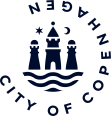Childcare dictionary
Frequently asked questions (FAQ)
Expand all
Nursery - In Danish: Vuggestue
A nursery takes care of large groups of children (60–96 children per nursery with groups of 12 children and 3 adults to each room).
– For children between 6 months old until 2 years and 10 months old.
Public childminding - In Danish: Kommunal dagpleje
A public childminder takes care of 3 children in the childminder’s own home.
The public childminders are organised in playgroups, where they meet about once a week. The children become comfortable with each other and dare to explore the world in a group larger than their own.
The childminders can meet and exchange experiences and share knowledge. As the playgroups meet regularly, the children in the playgroup get to know the adults and the other children. This means that the public childminders can be used as guest childminders during each other's holidays and illness.
Multi public childminding scheme - In Danish: Flerbørnsdagpleje:
Multi public childminding schemes take care of 8-10 children by 3-4 adults in business premises.
Kindergarten - In Danish: Børnehave
A kindergarten takes care of large groups of children (44–96 children per kindergarten with groups of 22 children and 3 adults to each room).
For children between 2 years and 10 months until 6 years old.
Combined nursery and kindergarten - In Danish: Integreret institution
A combined nursery and kindergarten takes care of large groups of children (60–96 children per nursery with groups of 12 children and 3 adults to each room and 44–96 children per kindergarten with groups of 22 children and 3 adults to each room).
A combined nursery and kindergarten is an offer of childcare service for children between 6 months old - 6 years, which means that your child is guaranteed childcare in the same childcare service until your child starts school.
Digital Placement self service solution - In Danish: Digital Pladsanvisning
Using the digital self-service solution Digital Placement, you may e.g.;
- sign up your child for public childcare services
- reply on childcare offers
- withdraw from childcare
- apply for income-based subsidy
Income-based subsidy - In Danish: Økonomisk fripladstilskud
When your child is enrolled in a childcare service, you will receive a monthly bill. Depending on your total household income you might be able to apply for an income-based subsidy and receive a reduced payment for your child's childcare service.
Outlying kindergarten - In Danish: Udflytterbørnehave
An outlying kindergarten is a kindergarten located in an environment with plenty of fresh air. You drop your child off at childcare service in Copenhagen. From here, your child will be taken back and forth in the kindergarten's bus to the outlying kindergarten.
There are also childcare services, which have an outlying section attached. This means that at least one group of children travels by bus to the outlying kindergarten every day.
The City of Copenhagen has more than 50 outlying kindergartens.
Kindergarten with a forest bus - In Danish: Børnehave med skovbus
Kindergartens in the City of Copenhagen have the option of a forest bus, which has room for 11 children. In some kindergartens, the same group of children and adults go to the forest every day, while in other kindergartens the groups of children and staff take turns going to the forest, e.g. staying at the kindergarten for 14 days and in the forest for 14 days.
Some of the forest buses travel to a fixed location every day, while other forest buses travel to different locations depending on the season, wind and weather. There are currently 12 forest buses in the City of Copenhagen.
Kindergarten with a rumble pot - In Danish: Børnehave med rumlepotte
A rumble pot is a bus that is attached to an existing Kindergarten. It is a converted bus with seats, tables and seat belts etc. for 20 children and 3-4 adults.
The bus is equipped with a kitchen, toilet and drying cabinet for a change of clothes. The seats and tables are designed so that they can be converted into beds if some of the children need a nap.
Typically, different groups in the kindergarten take turns travelling with the rumble pot - thus each group of children spends one week in the rumble pot and three weeks in the kindergarten. The kindergartens that have a rumble pot meets occasionally at the beach, in the woods and on playgrounds.
There are currently 11 kindergartens in the City of Copenhagen that have a rumble pot.
Sports kindergartens - In Danish: Idrætsbørnehave
Some kindergartens have a sports profile and a certificate stating that they are a sports kindergarten. This means that the staff are specifically trained in sports and movement. We currently have 16 sports kindergartens in the City of Copenhagen.
Childcare services open 24/7 - In Danish: Døgnåbne dagtilbud
Childcare services open all day
If your child needs care with extended opening hours, e.g. at night or weekends, we have two childcare services in the City of Copenhagen.
You must be able to document your need for the special extended opening hours in form of copies of payslips or other documentation of working hours. If your child lives with both parents, both must be able to provide documentation. The documentation must be sent to Pladsanvisningen.
The childcare services are:
- Haraldsgården in Haraldsgade in Nørrebro
- Månehuset in Tietgensgade in the city centre
Company childcare services - In Danish: Virksomhedsinstitution
There are a number of company childcare services where children of employees have priority. To make use of the priority right, parents must document their employment with the company in the form of a payslip, letter of employment or similar to Pladsanvisningen.
Children who do not live in the City of Copenhagen can also sign up on the waiting list of a company childcare service if they can document their employment with the company.
Companies in Copenhagen are:
- Seruminstituttet
- Ministerierne og styrelser
- Teatre i Danmark
- FLSmidth A/S
- Lundbeck
- Vartov valgmenighed
- Nordisk Film
